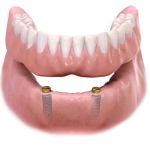Understanding Tooth Sensitivity and Its Causes
Tooth sensitivity is a common issue that many people experience. It can occur when you consume hot, cold, sweet, or sour foods and drinks, or even by breathing cold air. The pain can be sharp and sudden, shooting deep into the tooth nerve endings. This sensitivity can be caused by a variety of factors, such as erosion and gum recession. Teeth roots, which aren't covered by hard enamel, contain thousands of tiny tubules leading to the tooth's center. These dentinal tubules allow stimuli to reach the nerve, causing the pain. Dental sensitivity can also be a symptom of underlying problems like cavities, gum disease, or a cracked tooth.
Possible Causes of Tooth Sensitivity
There are numerous factors that can lead to the development of sensitive teeth. Brushing too hard or using a hard-bristled toothbrush over time can wear down enamel and cause the dentin to be exposed, as well as lead to gum recession. Some people are genetically prone to thin gum tissue, while others develop gum recession due to periodontal disease. Inflamed and sore gum tissue may cause sensitivity due to the loss of supporting ligaments. Cracked or chipped teeth may fill with bacteria, causing inflammation. Grinding or clenching your teeth can wear down the enamel and expose the underlying dentin. The use of certain teeth whitening products can contribute to sensitivity. Age can also play a role, with teeth sensitivity being highest between the ages of 25 and 30. Plaque on the root surfaces and the consumption of acidic foods and mouthwashes can worsen the situation. Recent dental procedures like fillings, teeth cleanings, and dental restoration placement can cause temporary sensitivity.
Care and Treatment Options
In some cases, teeth sensitivity goes away on its own, especially if it's due to a recent dental procedure. However, if the sensitivity persists, it's important to talk to a dentist. There are several treatment options available depending on the cause. Using toothpaste for sensitive teeth, maintaining proper oral hygiene, avoiding acidic foods, and using a fluoridated mouth rinse can help. There are also dental procedures such as applying dental bonding or fluoride to the exposed root surface that may be recommended. If you still have discomfort, it's crucial to see a dentist who can determine the cause and recommend the appropriate treatment.
When to See the Doctor
Schedule an appointment with your dentist if your teeth are sensitive to cold, heat, or sweets. It's also important to ask your dentist questions to understand the cause and available treatments. Several different factors can cause teeth sensitivity, and the need for treatment depends on the underlying cause. Addressing mildly sensitive teeth with desensitizing toothpaste and good oral hygiene can help, while severe sensitivity caused by gum recession, cavities, or cracked teeth may require more advanced treatment. Your dentist can assess your situation and recommend the best course of action to keep your teeth healthy and pain-free.
In conclusion, tooth sensitivity caused by disease or various factors can be managed and treated. It's essential to understand the possible causes, take appropriate preventive measures, and seek professional dental advice when needed. With the right care and treatment, you can reduce the discomfort and protect your oral health.






 City Dental- Dental Implants and Orthodontics4.0 (40 review)
City Dental- Dental Implants and Orthodontics4.0 (40 review) Downtown Dental Center4.0 (114 review)
Downtown Dental Center4.0 (114 review) Todays Dental Of Joliet (formerly Hammes Family Dental)4.0 (130 review)
Todays Dental Of Joliet (formerly Hammes Family Dental)4.0 (130 review) Berg Dental Group4.0 (70 review)
Berg Dental Group4.0 (70 review) Holden Barry L DMD, PC4.0 (10 review)
Holden Barry L DMD, PC4.0 (10 review) Midjersey Family Dentistry4.0 (86 review)
Midjersey Family Dentistry4.0 (86 review) The Importance of Oral Health Education During Pregnancy for a Healthy Pregnancy
The Importance of Oral Health Education During Pregnancy for a Healthy Pregnancy Best Tips for Brushing Your Teeth Properly for Healthy Gums: Essential Techniques for Oral Health
Best Tips for Brushing Your Teeth Properly for Healthy Gums: Essential Techniques for Oral Health Why Skipping Dental Checkups Can Lead to Bigger Oral Health Problems
Why Skipping Dental Checkups Can Lead to Bigger Oral Health Problems Advantages of Porcelain Dental Restorations
Advantages of Porcelain Dental Restorations How Can Diabetes Cause Tooth and Gum Problems? Preventing and Managing Oral Health Issues
How Can Diabetes Cause Tooth and Gum Problems? Preventing and Managing Oral Health Issues Healthy Habits for Promoting Good Oral Health and Hygiene: Tips for a Healthy Smile
Healthy Habits for Promoting Good Oral Health and Hygiene: Tips for a Healthy Smile